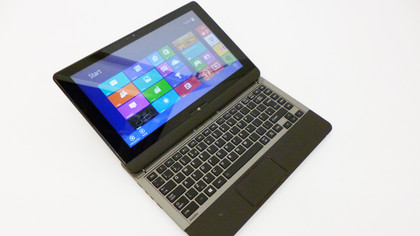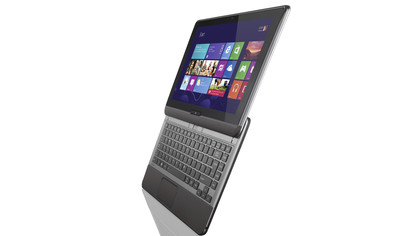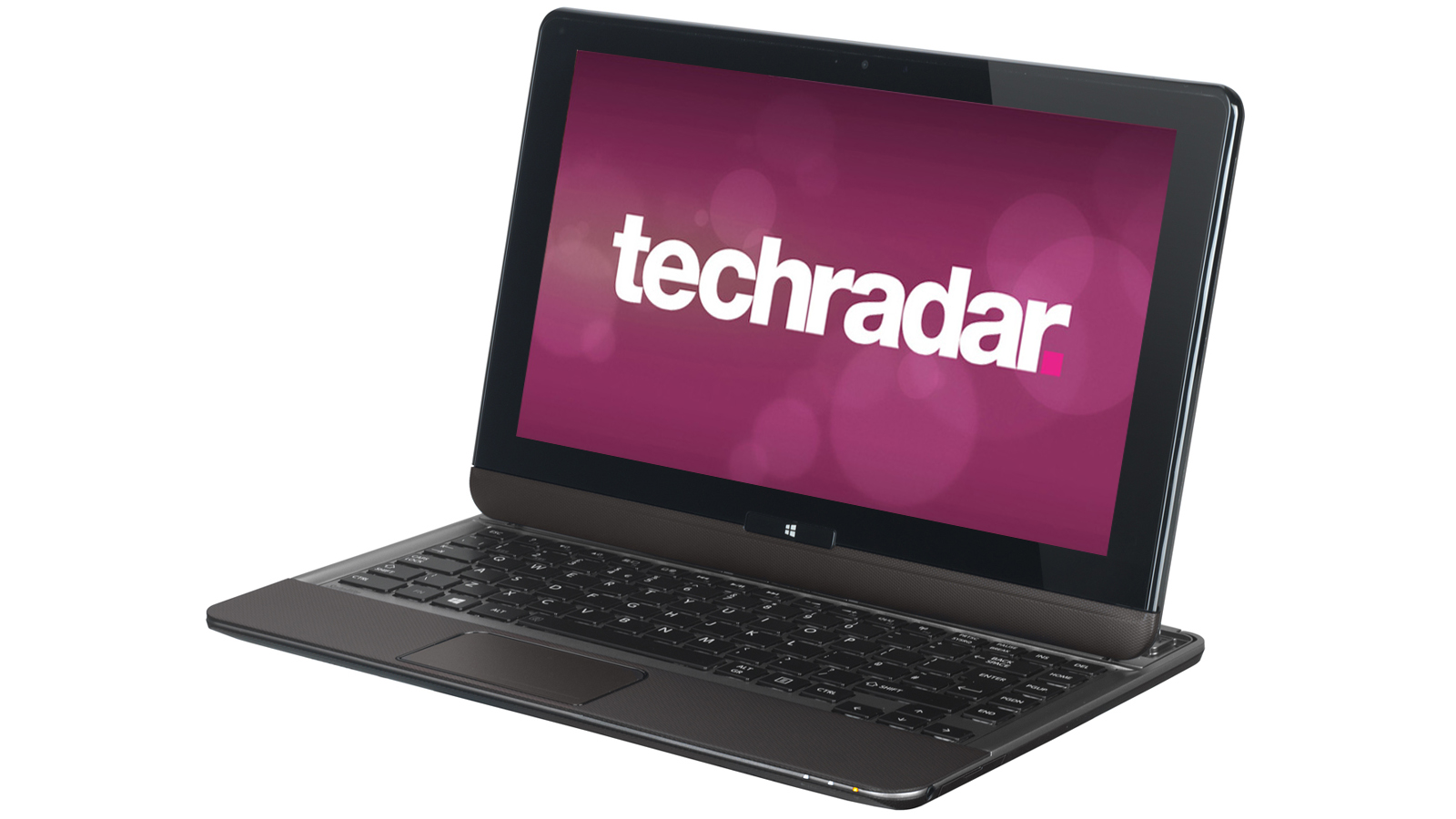Why you can trust TechRadar
Packing in an entry-level Intel Core i3 processor in the UK version tested here meant that the Toshiba Satellite U920t was never going to ace our benchmarks. The results reflected the lower speeds. A Cinebench score of 6,881 is middle of the road for a modern laptop, yet we were pleased to report that there didn't seem to be any lag in the system.
To put that in context, the Sony and Dell rivals scored over 9,000 in the same test, which shows how much difference the lesser chip makes in terms of raw number-crunching.
However, the longer battery life was a positive knock-on effect of the less demanding chip.

We test laptops using a strenuous mix of looping HD video and simultaneously simulating a word processing test. While most laptops last around 180 minutes, the Toshiba Satellite U920t lasted a whopping 235 minutes.
This means that you could watch four hours of videos while travelling or relaxing before reaching for a charger. This pay-off certainly comes at the expense of power and screen quality, but for many, over an hour of extra time away from the mains is more than worth it.
Benchmarks
Cinebench: 6881
Battery Eater: 235
3D Mark 06: 4528
In terms of 3D performance, the Toshiba U920t relies on the SoC Intel HD 4000 graphics core. This is a standard feature of Intel Core chips, and the higher the model, the more performance you can expect.
An Intel Core i7 could power games, if at lower frame rates, but with the Core i3 you'd be lucky to get advanced image editing and 3D rendering.

As expected, the Toshiba Satellite U920t managed a disappointing 3D Mark score of 4,528, so don't expect to play the latest games.
However, if you are looking at hybrids, don't expect an obvious powerhouse alternative. Their small form factors means that a discrete graphics chip is the first feature to get canned.
